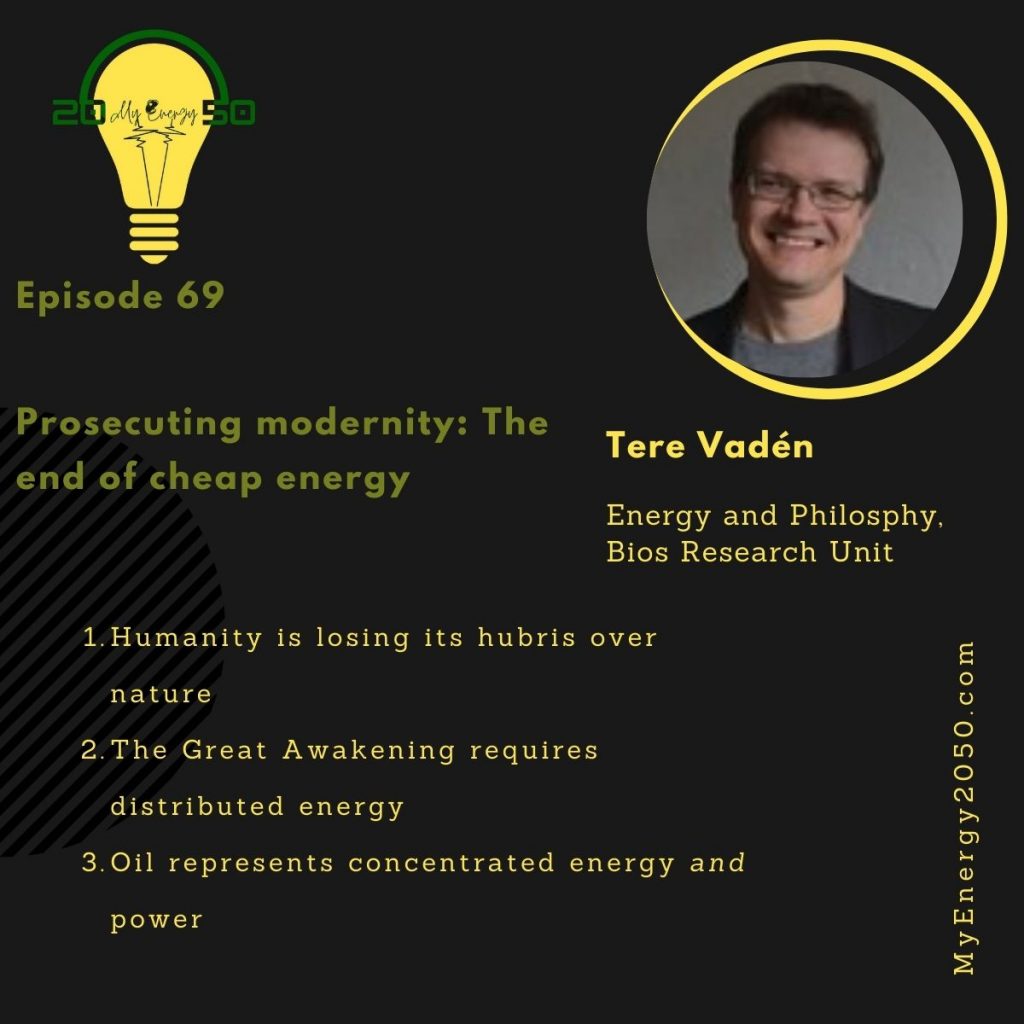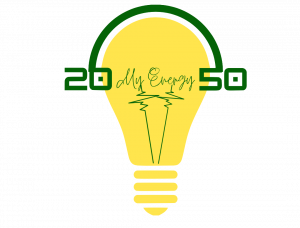This week we speak with Tere Vadén, a philosopher in the Bios research unit in Helsinki.
Both society and nature are moving past the age of cheap fossil fuels. When coal, oil, and gas could be taken out of the ground and burned for the high calorific content to power our world. Now we have to contend with putting all that CO2 back into the atmosphere and the growing power of nature which threatens our climate.
In this interview, Terre, provides us with a perspective through philosophy and humanities to understand the deeper meaning of what it actually means to release so much CO2 from fossil fuels. Humanity released the CO2 by assuming we had power over nature, but the sad fact is, nature has the power over us. And now we are just beginning to pay the price. As we see now, a great humbling is now occurring based on our hubristic use of natural resources.
One of the key words for this episode is ‘hubris’ so pay attention.
The pace of this episode speaks to Terre’s in-depth thinking about the interlinkages between societies, governments, and nature. If you enjoy a more business or market perspective on the energy system, then this episode delivers on these points; we start off our discussion from understanding current affairs in climate negotiations and the impact of Russia’s invasion of Ukraine – from a Finnish perspective.
Later, we delve into a more philosophical discussion about how energy is not just the outcome of processing raw material, but rather a source of power and control – over both society and nature. That is, we discuss common understandings of how power can be seen through government actions, but we also get into how nature holds power over humanity – and this is one of the key lessons society has forgotten.
It was us that put so much CO2 into the atmosphere, and it is now us that have to deal with nature’s changing ways.
Each episode of the My Energy 2050 podcast is unique and different. This episode is a great representation of that. One of the main joys of doing this podcast is to find new people to talk with about energy. And here is a great example of meeting Terre in Helsinki and gaining a greater understanding of both Finland’s approach and perspective on energy,
The meeting also brought about a deeper discussion about how philosophy can inform our understanding of energy. More specifically, how we use and perceive energy in our modern society and the greater awareness of the downsides.
As you’ll hear, there are so many new ways we need to explore to expand our thinking on conceptualizing the energy transition. In fact, it is hard to see how we can have an energy transition if we don’t have new conceptual framings to understand what we have done, what we are doing now, and what we need to get done in the future, all to get off fossil fuels.

A final note, this interview was done for my current role as an Open Society University Network, Senior Fellow at Chatham House, The Royal Institute of International Affairs. The funding was generously provided to produce the podcasts until the end of 2022. And the funding was provided to travel to interview a range of experts on how the current energy crisis is impacting different countries around Europe.
The intent of the My Energy 2050 podcast is to spread the knowledge about how the energy system can assist our transition towards a greener future. The content of each episode is great for teaching, research and identifying how you can assist this energy transition.
Check out the free book:
Energy and Experience: An Essay in Nafthology By Antti Salminen & Tere Vadén
Outline and Transcript
Listen and follow the transcript
The end of cheap energy interview.
0:00
The story of how he got interested in philosophy.
4:54
What’s the impact of the code distancing?
11:33
What is the role of oil and gas in the future?
18:21
Is there a danger that the energy transition will remain like a centralized system?
25:43
What is the concentration of energy within a given space?
30:12
How can we use the current crisis in Russia as an example of what can happen during a crisis?
35:25
If you don’t have an accident nothing happens.
41:10
Urban vs. rural divide.
46:39
How have we gotten to this point in our culture?
51:34
The endowment of fossil fuels is not unlimited anymore.
56:18
What is the big debate around the cops?
1:04:43
Dr. Michael LaBelle is an associate professor at Central European University in the Department of Environmental Sciences. He produces the My Energy 2050 podcast to change how we communicate and improve the energy transition.
